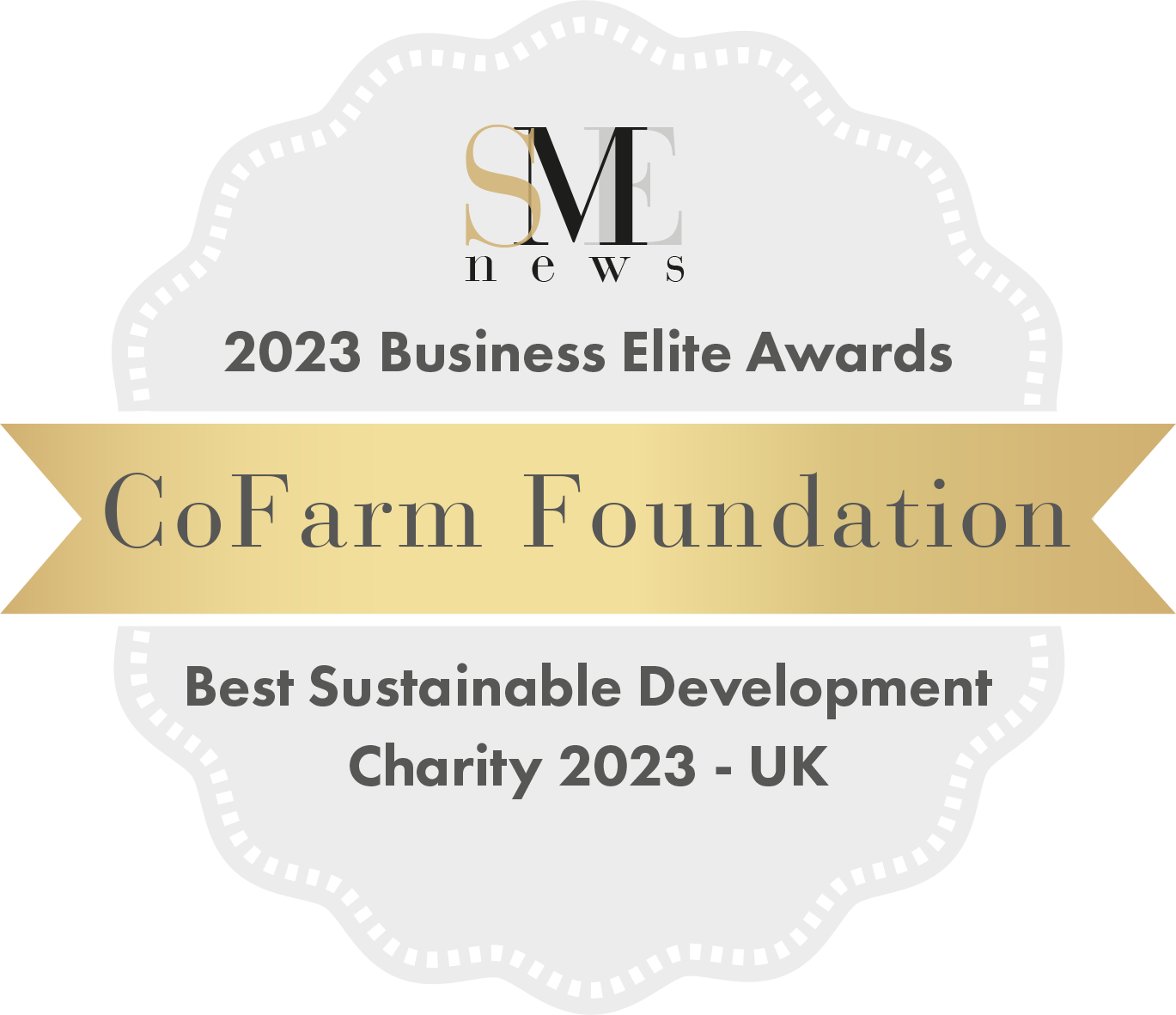CoFarm Cambridge has launched a fundraising campaign to help double its harvest in 2021 and significantly boost biodiversity in and around the 7-acre site. The campaign launched publicly on World Environment Day on 5th June.
Last year’s transformation
Last year, over 200 volunteers helped grow more than 4.5 tonnes of organically-produced vegetables for 8 community food hubs in Cambridge, supporting vulnerable members of the community during the pandemic.
This year, the farm aims to at least double its harvest, while increasing habitats for birds, bees and other species through its new hedgerows, heritage orchard and four-acre wildflower meadow.
CoFarm Cambridge is a pilot project for agroecological-based farming, which is set to be scaled up across the country.
The funds raised by CoFarm Cambridge’s new fundraising campaign will play a vital role in running the market garden and associated nature-enhancing projects.
While most of the labour is carried out by local volunteers, huge amounts of supplies are needed to run a nature-friendly farm that does not use any pesticides, herbicides or chemical fertilisers. Thousands of trees and seeds, fencing, gardening tools, natural fertilisers, tonnes of organic compost, nature-friendly pest control solutions and netting, fleecing and polytunnels are just a few of the supplies needed to double its harvest and boost biodiversity even further this year.
Help nature and communities thrive by donating to CoFarm’s campaign: https://www.justgiving.com/campaign/cofarmcambridge
Biodiversity boost: Meadows, hedgerows and an orchard
In the last week, volunteers at CoFarm Cambridge helped to sow more than 90 kilograms of wildflower seeds across four acres of the site, which will grow into an important habitat for insects, birds, small animals and other wildlife.
In addition to the wildflower meadow, this year, CoFarm Cambridge has created a species-rich hedgerow made up of more than 1,000 young trees to support nature, as well as establish a heritage community orchard. These habitats, which are declining in the UK, are vital sources of shelter and food for many species, and are listed as priority habitats under the UK’s Biodiversity Action Plan.
The new meadows will contain 39 varieties of flowers and 17 types of grass, ranging in colour, height and structure. These include: wild carrot, yarrow, ragged robin, oxeye daisy, musk mallow, lady's bedstraw, yellow rattle and birds foot trefoil.
Wildflower meadows are one of the rarest habitats in the UK, which have declined by 97% since the 1930s, as a result of changes to farming methods and increasing land development.
They provide shelter and food for bees, other wild pollinators and insects such as butterflies, moths and dragonflies, along with animals that eat insects, such as birds, hedgehogs and bats.
When habitats such as meadows, hedgerows and orchards are located near one another, it enhances biodiversity even further by creating wildlife corridors and a greater variety of food, shelter and nesting spots.
Last year’s cover crop had many flowers, but this year’s meadow will span a significantly larger area
In addition to being a biodiversity hotspot, planting meadows near food crops helps to retain water in the soil. And, they provide a beautiful, peaceful environment for local residents to enjoy and immerse themselves in nature.
At CoFarm Cambridge, volunteers used a broadcasting technique to create the meadow - this involves casting seeds out with a wide sweep of the arm to spread them along the ground in a regular, even manner. The timing of the community seed broadcasting on Thursday night was perfect, as it was followed by a torrential overnight downpour of rain which helped to bury the seeds in the soil, negating the need for a tractor to harrow them in.
CoFarm hopes to create fairer, more inclusive local food systems based on the regenerative principles of agroecology, which promises greater benefit for communities and for nature. It is only the third registered charity – out of more than 185,000 – to make explicit reference to promoting agroecological food and farming in its charitable objects.
‘Co-farming provides a positive and holistic solution to some of the most pressing issues of our time - climate change, health inequalities, biodiversity loss and food security,’ said Gavin Shelton, CoFarm Foundation’s founder and CEO.
--
About CoFarm
CoFarm Cambridge is a subsidiary of CoFarm Foundation, a start-up charity that aims to improve access to local, sustainably-grown food in the UK. By 2030, the Foundation aims to enable the creation of a distributed network of agroecological community farms across the country – at least one in every local authority. Each farm will respond to local needs and cultures, and will be co-created with and for the local community.
CoFarm Cambridge is the pilot project which broke ground in May 2020. It is working closely with ecologists and social researchers to determine the effects of cofarming on parameters such as community cohesion and biodiversity, which will help drive the CoFarm model across the UK.
Special mentions
The creation of the heritage orchard and wildflower meadows was supported by the Cambridge Water PEBBLE Fund and by Cambridge City Council. Melcourt Industries Limited donated sixty 45 litre bags of organic compost, and the Cambridge Canopy Project donated 97 additional fruit trees. The City Council also assisted with preparation of the soil using a tractor and rotavator, prior to seed broadcasting.
Amey has so far donated 64 tonnes of PAS 100 organic soil improver from their Waterbeach Waste Management Park this year and last year.
Cambridge-based technology company Arm has provided financial support in 2020 and 2021, which has paid for rabbit-proof fencing around the market garden and expert supervision from CoFarm Cambridge’s horticultural leads, Peter Wrapson and Dominic Walsh.
The species-rich hedgerow was made possible thanks to a donation of trees from TCV – The Conservation Volunteers, as part of its ‘I Dig Trees’ programme with Ovo Energy, and The Woodland Trust, through its PlanTree initiative with Sofology.
The wildflower seeds were purchased at a discounted rate from Meadow Mania.
A bee on a flower at CoFarm Cambridge








